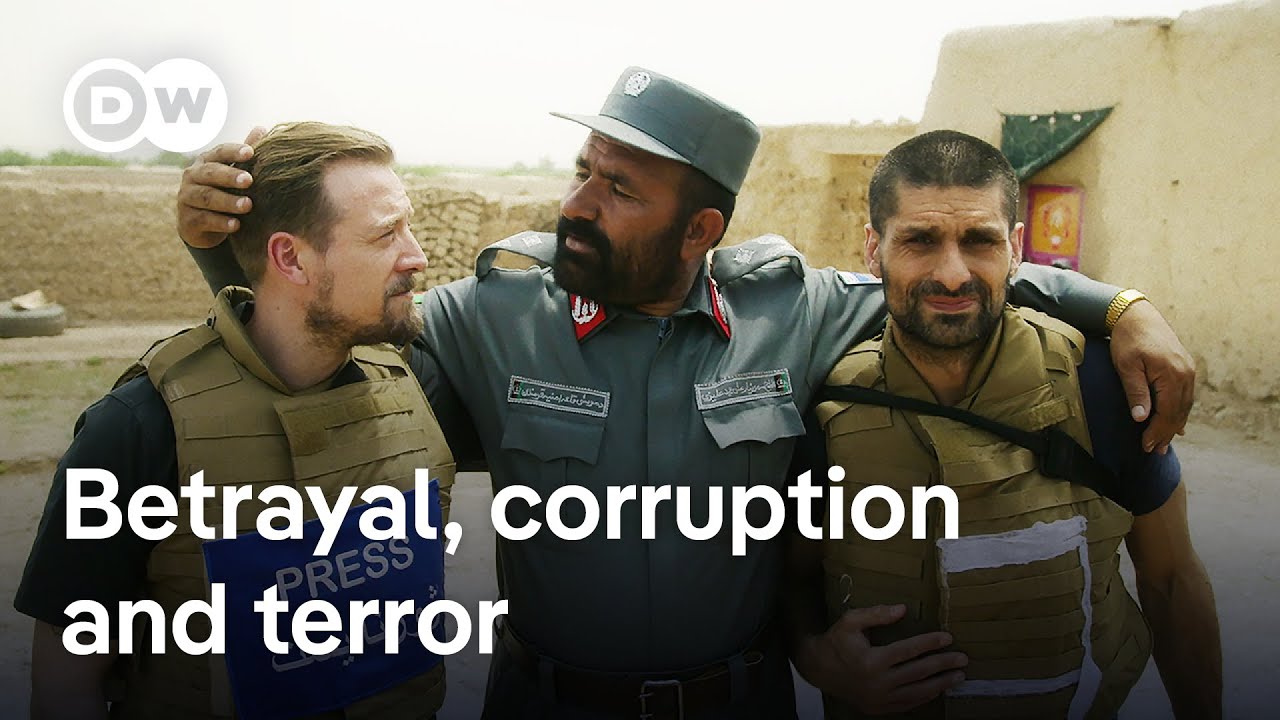Afghanistan: Caught between drug cartels and the Taliban | DW Documentary
When international troops withdrew in 2021, the Taliban recaptured Afghanistan. The ‘forever war’ was over. But this documentary shows how western military forces were misled or acted on insufficient intelligence — with fatal consequences for the Afghan civilians they were sent to protect.
The documentary “Winning Hearts and Minds” shows how western forces were deliberately misled and in many cases acted on the basis of inadequate information. The results were a disaster for the Afghan population.
In 2006, when Danish and British troops were deployed to Musa Qala in Helmand Province, southern Afghanistan, the mission was clear. They were to defend their allies, the local police forces, against Taliban insurgents. But this plan was based on a misconception. While the local police in Musa Qala were seen as the allies of the West in the fight for democracy and human rights, in reality they supported a brutal and murderous drug cartel.
Filmmakers Martin Tamm Andersen and Nagieb Khaja uncover this scandal, as well as the local police’s alliance with the brutal brothers Koka and Issa Khan. The filmmakers also examine a corrupt ex-governor’s hold over the Musa Qala police and how this man exploited western involvement to help his drug trade. Musa Qala eventually fell to the Taliban, as the population faced a choice between a ruthless drug cartel and an extremist regime.
The film reveals the tragic betrayal of the international mission that ultimately left an entire country in chaos.
#documentary #dwdocumentary
______
DW Documentary gives you knowledge beyond the headlines. Watch top documentaries from German broadcasters and international production companies. Meet intriguing people, travel to distant lands, get a look behind the complexities of daily life and build a deeper understanding of current affairs and global events. Subscribe and explore the world around you with DW Documentary.
Subscribe to:
⮞ DW Documentary (English): https://www.youtube.com/dwdocumentary
⮞ DW Documental (Spanish): https://www.youtube.com/dwdocumental
⮞ DW Documentary وثائقية دي دبليو (Arabic): https://www.youtube.com/dwdocarabia
⮞ DW Doku (German): https://www.youtube.com/dwdoku
⮞ DW Documentary हिन्दी (Hindi): https://www.youtube.com/dwdochindi
For more visit: http://www.dw.com/en/tv/docfilm/s-3610
Follow DW Documentary on Instagram: https://www.instagram.com/dwdocumentary/
Follow DW Documental on Facebook: https://www.facebook.com/dwdocumental
We kindly ask viewers to read and stick to the DW netiquette policy on our channel: https://p.dw.com/p/MF1G

24 comments
the west put thise people in to power shame on the Nato
The practice of 'tea boys', or 'bacha bazi" (dancing boy), came from Persia to Afghanistan centuries ago.
All those face full of evil. Not a smile, death, and terror only.
افغانستان میں ہر قسم ظلم ہوا مگر اب طالبان کی حکومت ہے لوگ امن کیساتھ عزت کیساتھ اپنی زندگی گزار رہے ہے
Their country their people their will world must respect!!!
Und DW? Habta wohl immer noch nichts so richtig mitbekommen mit der Lage in Gaza wa?
20 Jahre lang dieselben Dokus über Afgh. geht ja aber.
They order you to win hearts and minds, but wont let you take down the guy assaulting kids. No wonder we lost
Mind your business, DW. No one needs your lies.
Miss the USA?
48:02 millions of examples across the planet. Occupation and colonial dominance does not work if the puppet government is made of honest people.
51:14 thanks for this wonderful and truly honest documentary. Now that we know the truth about the western occupation of Afghanistan and why it failed. Please make another similar documentary about the ongoing western occupation of Palestine, and what the Israelis are doing to the civilian population there.
Don't upload old videos unless it is usefull
propaganda against Afganistan
there are plenty of other countries like mexico wht dont you expose them
usa supported this warlords…..they were spreading lgbt…….
This the movie Hollywoodgate
Powerful documentary. Great job pushing and finding testimonials shedding light on this cruel situation.
Propagenda propagenda propagenda
CIA Drug Cartels
uncle sam misses opium's monetary benefits
Why afghanis don't trust western governments??
Because over 10 countries invaded Afghanistan in the past 100 years
Helmand and Kandahar Urozgan Province is 99% Pashtun, yet they often had Dari-speaking interpreters. From my personal experience, this was a major flaw in the system. Interpreters were often sent to areas where they neither spoke the local language nor understood the culture. This led to significant communication breakdowns, with much being lost in translation. Over the past 20 years in Afghanistan, the wrong people were in charge—they never allowed the right individuals, those with experience and true understanding, to lead the nation. Anyone who tried to do the right thing was quickly shut down. The USA and NATO were aware of these issues but continued to tolerate corruption, crimes, and more. Many of the generals who stayed in the country during the 2021 withdrawal had bought their ranks and positions, and are now being welcomed with open arms in the USA and Europe. Afghanistan’s downfall was largely due to those who were in charge for the past 20 years, and we supported them—and still do. This war was nothing more than a business venture.
I wonder if these were the "government officials" we left behind? Those government officials are animals.
After 20 years of war, they still haven’t figured out what language is spoken in Helmand Province. I can’t believe that the interpreter needs another interpreter to speak the language.
😂
Thanks Biden!